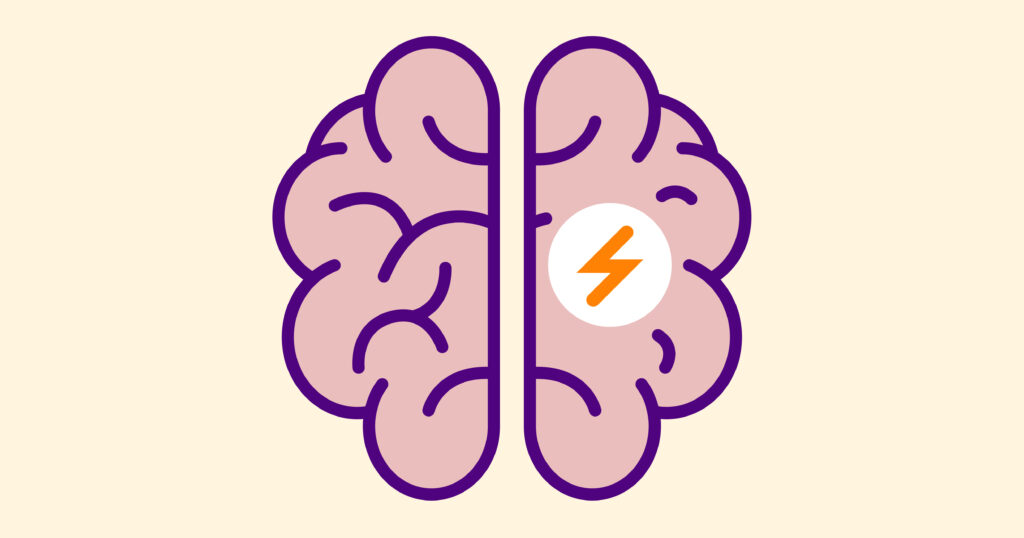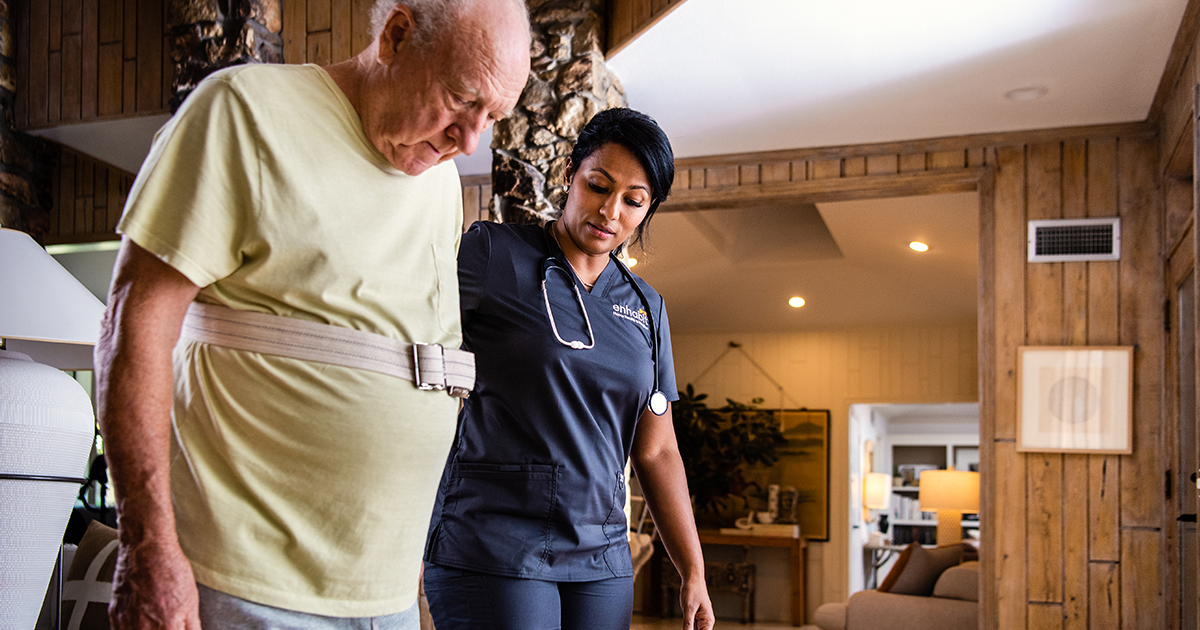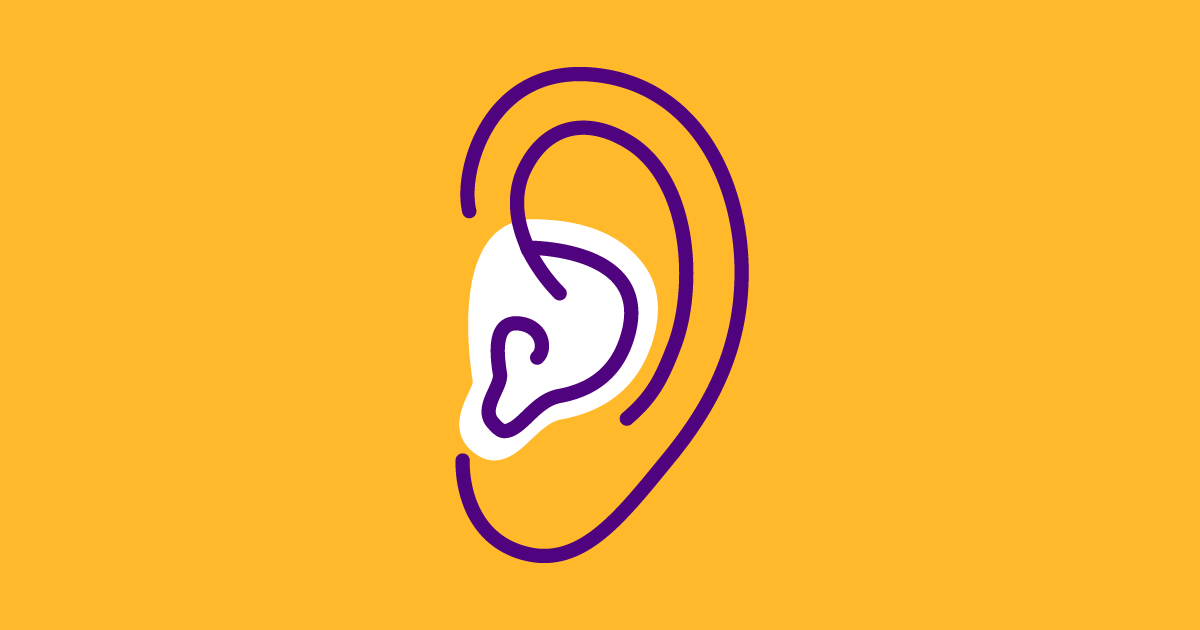May marks the start of American Stroke Month – a time when the U.S. raises awareness about stroke prevention and recognition. While it’s important to know warning signs and manage risk factors, you may be wondering what’s involved in stroke treatment and rehabilitation. And most importantly, can you recover from a stroke?
What is a stroke?
A stroke occurs when a blood vessel that carries nutrients and oxygen to the brain is either blocked by a clot or ruptures. When this happens, part of the brain cannot get the blood and oxygen it needs, causing the brain cells to begin to die.

Since the brain regulates our body processes, a stroke may affect your ability to move, feel, think or behave.
Several factors lead to the way a person is affected by a stroke, including:
- The location of the blood vessel(s) that is affected
- The area and extent of the brain injury
- The type of stroke, ischemic (clot) versus hemorrhagic (rupture)
Learn more about strokes and how you can manage risk factors here.
Can you recover from a stroke?
According to the Centers for Disease Control & Prevention (CDC), more than 795,000 Americans have a stroke each year. Many of these people recover entirely while others may have long-term disabilities. Each person’s recovery looks different, but there are methods for stroke treatment and rehabilitation.
Stroke treatment and rehabilitation usually begin in the hospital within a day or two after someone has a stroke. A physician will diagnose someone suspected of having a stroke through a neurological exam and questioning about symptoms. This may even begin in the ambulance on the way to the hospital.
Further tests or assessments may be run to determine the type of stroke. Once the stroke has been diagnosed, the care team will build the treatment and rehabilitation plan. This will depend on the severity of the stroke’s effects.
Receiving care in the hospital helps patients begin stroke treatment and rehabilitation so they can transition back home safely. Although functional abilities may be restored soon after a stroke, a patient’s recovery and adjustment to everyday life can be an extensive process once they return home. That’s where Enhabit Home Health & Hospice can help.
How Enhabit provides stroke treatment and rehabilitation
If your physician has certified you as homebound, in addition to other qualifying criteria, you may be eligible to receive stroke treatment and rehabilitation from the comfort of wherever you call home. Instead of traveling to the hospital or rehabilitation facility, the home health care team will travel to you.
After a stroke, Enhabit’s Stroke Management Program can help you learn to manage your condition and provide practical strategies to improve your quality of life, including restoring your independence and functionality to the highest level.
Our clinicians will determine what matters most to you in your recovery and help you reach your health care goals. Learn more about how our Stroke Management Program can help below.
We ensure a safe transition from the hospital or rehabilitation facility to your home.
Enhabit’s Care Transitions Program is designed to complement hospital discharge plans and reduce hospital readmissions, providing a safe and effective transition from the hospital to wherever you call home.
We teach you how to self-manage the effects of a stroke
There is no cure for a stroke. However, our teams will educate you about your stroke and teach you how to follow your treatment plan and address any symptoms or side effects. Learning to self-manage your care will help you gain back or maintain independence and get back to doing the things you enjoy.
We provide physician-ordered skilled therapy including physical, occupational and speech therapies
After a stroke, people may have trouble with functions that were once easy such as walking, talking or completing activities of daily living (ADLs). Our interdisciplinary teams will create a plan for you that involves whichever therapies you need to recover and reach your health care goals.
We educate you on risk factors and prevention strategies
Each stroke survivor has their own unique set of risk factors that contributed to their stroke. Knowing the underlying cause of your stroke is important in preventing another one. Certain traits and lifestyle choices increase the chance of having a stroke – and our care team will help you learn what you can do to stay on the right track.
We work with your physician to manage your medications
Medications can relieve symptoms and decrease the risk of another stroke. Our team will teach you the importance of staying up-to-date on your medications. This includes knowing what medications you’re taking, recognizing their purpose and understanding how to take them exactly as directed. We will work with your physician to continuously determine a medication program that’s best for you based on your stroke treatment and rehabilitation progress.
We help you set future health care goals and determine what matters most
It’s important to us that you can get back to doing things you enjoy, no matter how big or small. Your Enhabit team will determine what matters most to you and set specific goals that you would like to be able to reach by the time you are discharged.
Additionally, we can help you plan for life’s “what if” moments. Advance care planning allows you to make future health care decisions to ensure the care you receive is consistent with your wishes. The Enhabit team can assist in this process and help put a plan in place for a potentially life-altering event. That way, it can reduce the stress and anxiety an unforeseen circumstance may bring.
Enhabit will work with your physician to help you get the care that you deserve. Visit our services page to learn more about our home health services and how our Stroke Management Program can assist you or a loved one.
 Back to Resource library
Back to Resource library
Browse top categories
Social Share
At Enhabit our patients are our number one priority. From providing the latest medical practices to building deep personal connections, we’re focused on upholding every patient’s dignity, humanity and sense of control on their health care journey.
Home health
Our home health services give patients access to the care they deserve in the comfort of their own homes. From disease and injury management to recovery from surgery, our clinicians help patients confidently achieve their health care goals.
Hospice care
Our hospice care services place importance on the comfort of every patient living with a terminal illness. Our caring professionals are dedicated to providing not just physical care, but spiritual and emotional support to every patient and their loved ones.






